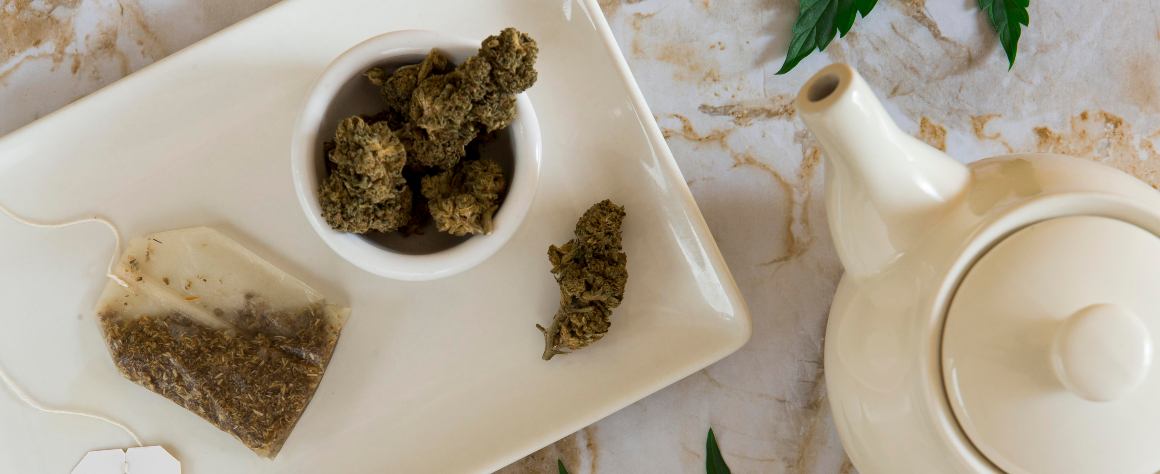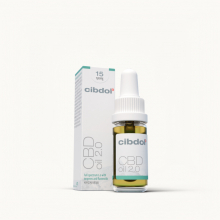Microdosing cannabis
Published:
Are you curious about microdosing cannabis but not sure where to start? You've come to the right place.
Contents:
- What is Microdosing Cannabis?
- Why Microdose Cannabis?
- How to Microdose Cannabis
- Is Microdosing Cannabis Safe?
- Conclusion
-
Frequently Asked Questions About Microdosing Cannabis
- What's the difference between microdosing and macrodosing cannabis?
- Can I microdose with any cannabis strain?
- How often should I microdose cannabis?
- What time of day is best for microdosing cannabis?
- How long does it take to feel the effects of microdosing cannabis?
- How long do the effects of microdosing cannabis last?
- Can I build up a tolerance to microdosing cannabis?
- Is it possible to microdose too much cannabis?
- Can I microdose cannabis while on other medications?
- Is microdosing cannabis legal?
- Can I microdose cannabis at work?
- Is it safe to microdose cannabis while pregnant or breastfeeding?
- Can kids or teens safely microdose cannabis?
- What's the best way to store cannabis for microdosing?
- How can I discreetly microdose cannabis in public?
- Do I need a special device to microdose cannabis?
- Can athletes or bodybuilders benefit from microdosing cannabis?
- Can microdosing cannabis help with opioid addiction?
- Summary
In this beginner's guide, we'll cover everything you need to know about microdosing cannabis, from what it is to how to do it safely and effectively.
What is Microdosing Cannabis?
Microdosing means taking very small amounts of cannabis, usually 1-5mg of THC. This is much less than the typical recreational dose of 10mg or more.
The goal of microdosing is to experience the therapeutic benefits of cannabis without the psychoactive "high". Many people find microdosing helps with:
- Anxiety and stress
- Pain and inflammation
- Focus and creativity
- Mood and energy levels
Why Microdose Cannabis?
So why would someone choose to microdose cannabis instead of taking a full dose? There are a few key reasons:
- To avoid unwanted side effects like paranoia or sleepiness
- To be able to function normally while still getting the benefits
- To save money, since you use much less cannabis
- As an alternative to other medications with harsher side effects
Microdosing allows you to tailor your cannabis use to your individual needs and sensitivities. It's a more precise, controlled way of using this powerful plant medicine.

How to Microdose Cannabis
Ready to give microdosing a try? Here's a simple step-by-step guide:
- Start low: Begin with 1-2.5mg of THC. If using CBD-rich strains, you can start a bit higher, around 5mg.
- Go slow: Wait at least 2 hours before taking more. It can take time to feel the full effects, especially with edibles. Be patient.
- Keep a journal: Write down your dose, time of use, and any effects you notice. This will help you find your ideal microdose over time.
- Adjust as needed: If you don't feel anything, slightly increase your dose next time. If you feel too much, decrease it. The key is to find the smallest effective dose.
- Be consistent: Once you find what works, stick to that dose and frequency (such as once or twice daily). Microdosing is most effective when done regularly.
The best cannabis products for microdosing are those that allow for precise dosing, such as:
- Tinctures
- Oils
- Low-dose edibles
- Vape pens with dosage control
Avoid smoking or vaping whole flower cannabis, as it's harder to control your dose that way. Tinctures and oils can be easily measured out drop by drop.
Is Microdosing Cannabis Safe?
Cannabis is a very safe substance overall, and microdosing makes it even safer by reducing the risk of adverse effects. That said, there are a few safety tips to keep in mind:
- Don't drive or operate machinery after microdosing, as it can still impair coordination and reaction time.
- Start with a high-CBD, low-THC strain if you're prone to anxiety.
- Avoid microdosing if you're on medications that interact with cannabis.
- Consult your doctor first if you have a pre-existing medical condition.
- Use lab-tested products from reputable sources to ensure consistent potency.
As with any substance, listen to your body and stop if you feel unwell. While the risks of microdosing are low, it's not right for everyone.
Conclusion
Microdosing cannabis is a great way to experience the benefits of this plant while minimizing side effects. By starting low, going slow, and being consistent, you can find your ideal therapeutic dose.
Whether you're looking for relief from pain, anxiety, or just want a creativity boost, microdosing cannabis is worth exploring. Just remember to do it safely and legally.
One final note - if you're interested in microdosing but want to avoid THC altogether, consider trying CBD oil. CBD is a non-psychoactive compound in cannabis that offers many of the same benefits as THC, without the high.
Many people find microdosing CBD to be helpful for issues like inflammation, stress, and sleep problems. It's also a good option if drug testing is a concern.
Microdosing cannabis is all about personalizing your use to your unique goals and needs. With a little experimentation and self-awareness, it can be a powerful tool for health and well-being. Happy microdosing!
Frequently Asked Questions About Microdosing Cannabis
What's the difference between microdosing and macrodosing cannabis?
Microdosing refers to taking very small doses (1-5mg of THC) for therapeutic effects without the "high", while macrodosing means taking larger doses (10mg+ THC) for stronger psychoactive effects.
Can I microdose with any cannabis strain?
While you can microdose with any strain, those higher in CBD and lower in THC are ideal for avoiding unwanted psychoactive effects. Look for strains with a balanced or CBD-dominant ratio.
How often should I microdose cannabis?
This varies from person to person. Some microdose daily, while others do it a few times a week. Start with once a day and adjust based on your response. Consistency is key for optimal benefits.
What time of day is best for microdosing cannabis?
That depends on your goals. Many people microdose in the morning for focus and energy, while others do it at night for relaxation and sleep. Experiment to see what works best with your schedule and needs.
How long does it take to feel the effects of microdosing cannabis?
Onset time varies based on the consumption method. Tinctures and oils taken sublingually (under the tongue) can kick in within 15-45 minutes, while edibles can take 1-2 hours. Vaping is the fastest acting method.
How long do the effects of microdosing cannabis last?
The duration of effects also depends on the delivery method. Generally, expect effects to last 2-4 hours with sublingual tinctures/oils, 4-6 hours with edibles, and 1-2 hours with vaping.
Can I build up a tolerance to microdosing cannabis?
Yes, it's possible to develop a tolerance over time. If you find your usual microdose becoming less effective, take a "t-break" (tolerance break) for a few days before starting again at a lower dose.
Is it possible to microdose too much cannabis?
While the risks of microdosing are low, taking too high of a dose can lead to unwanted side effects like anxiety or brain fog. Listen to your body and reduce your dose if you feel unwell.
Can I microdose cannabis while on other medications?
Possibly, but it's crucial to check with your doctor first. Cannabis can interact with certain medications, such as blood thinners or anti-anxiety drugs. Always disclose your cannabis use to your healthcare providers.
Is microdosing cannabis legal?
The legality of cannabis varies widely by location. In some areas, it's legal for medical and/or recreational use, while in others it remains illegal. Always check your local laws before microdosing cannabis.
Can I microdose cannabis at work?
That depends on your workplace policies and the nature of your job. Microdosing can still impair cognitive function, so it's not advised if you operate heavy machinery or drive for work. When in doubt, save microdosing for off-hours.
Is it safe to microdose cannabis while pregnant or breastfeeding?
No, it's best to avoid cannabis entirely during pregnancy and breastfeeding, as it can pass through the placenta and breast milk to the baby. Consult your doctor for safer alternatives for managing symptoms during this time.
Can kids or teens safely microdose cannabis?
Microdosing is not appropriate for children or adolescents, as cannabis can negatively impact brain development. The minimum legal age for cannabis use is typically 18-21, depending on location. Talk to a pediatrician if seeking therapeutic options for a child.
What's the best way to store cannabis for microdosing?
To maintain potency and freshness, store your microdosing products in airtight containers away from light, heat, and moisture. Many people find amber glass jars with a tight lid work well for tinctures and oils.
How can I discreetly microdose cannabis in public?
The most discreet ways to microdose on the go are with tinctures/oils (which can be dropped under the tongue), low-dose edibles like mints or gummies, or a low-profile vape pen. Avoid anything with a strong odor that will draw attention.
Do I need a special device to microdose cannabis?
No special equipment is required, but certain tools can make microdosing easier and more precise. A measured dropper for tinctures/oils and a digital scale for weighing out edibles can help ensure consistent dosing. Some vaporizers also allow you to control temperature for customized effects.
Can athletes or bodybuilders benefit from microdosing cannabis?
Yes, many athletes find microdosing cannabis helpful for managing pain and inflammation, aiding recovery, and boosting focus and motivation during training. However, cannabis is banned in most professional sports competitions, so check your league rules first.
Can microdosing cannabis help with opioid addiction?
Early research suggests that cannabis may have potential as an "exit drug" to help wean people off opioids and manage withdrawal symptoms. However, more studies are needed. Don't attempt to treat opioid addiction without medical supervision.
Summary
Microdosing cannabis involves taking very small doses (1-5mg THC) to experience therapeutic benefits without the psychoactive "high". This practice is gaining popularity as a way to manage conditions like anxiety, pain, and low energy while still being able to function normally. The key to successful microdosing is to start with the lowest effective dose and slowly adjust until you find your sweet spot.
The best products for microdosing are tinctures, oils, and low-dose edibles, as they allow for precise dosing. It's important to use lab-tested products from reputable sources to ensure consistent potency. Onset and duration of effects vary based on the consumption method, with sublingual tinctures and oils acting within 15-45 minutes and lasting 2-4 hours, while edibles can take 1-2 hours to kick in but last 4-6 hours.
Microdosing cannabis is generally safe, but it's not appropriate for everyone. Pregnant women, children, and people with certain medical conditions or medications should avoid it. It's also crucial to check your local laws, as cannabis legality varies widely. When microdosing, always start low, go slow, and listen to your body. Don't drive or operate machinery after dosing, and consult your doctor if you have any concerns.
With a little experimentation and self-awareness, microdosing cannabis can be a powerful tool for health and well-being. Whether you're looking to boost your mood, relieve pain, or enhance creativity, this subtle approach to cannabis use is worth exploring.









